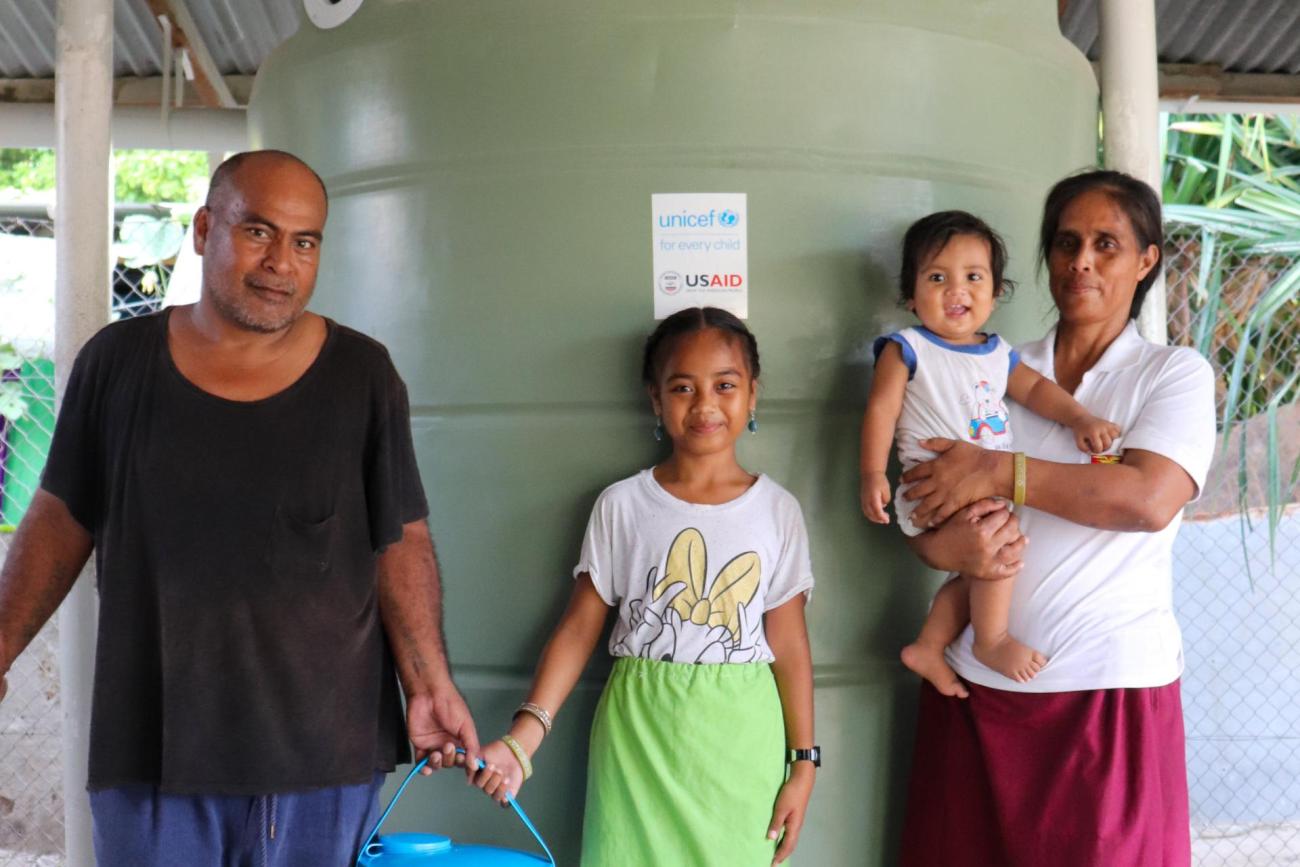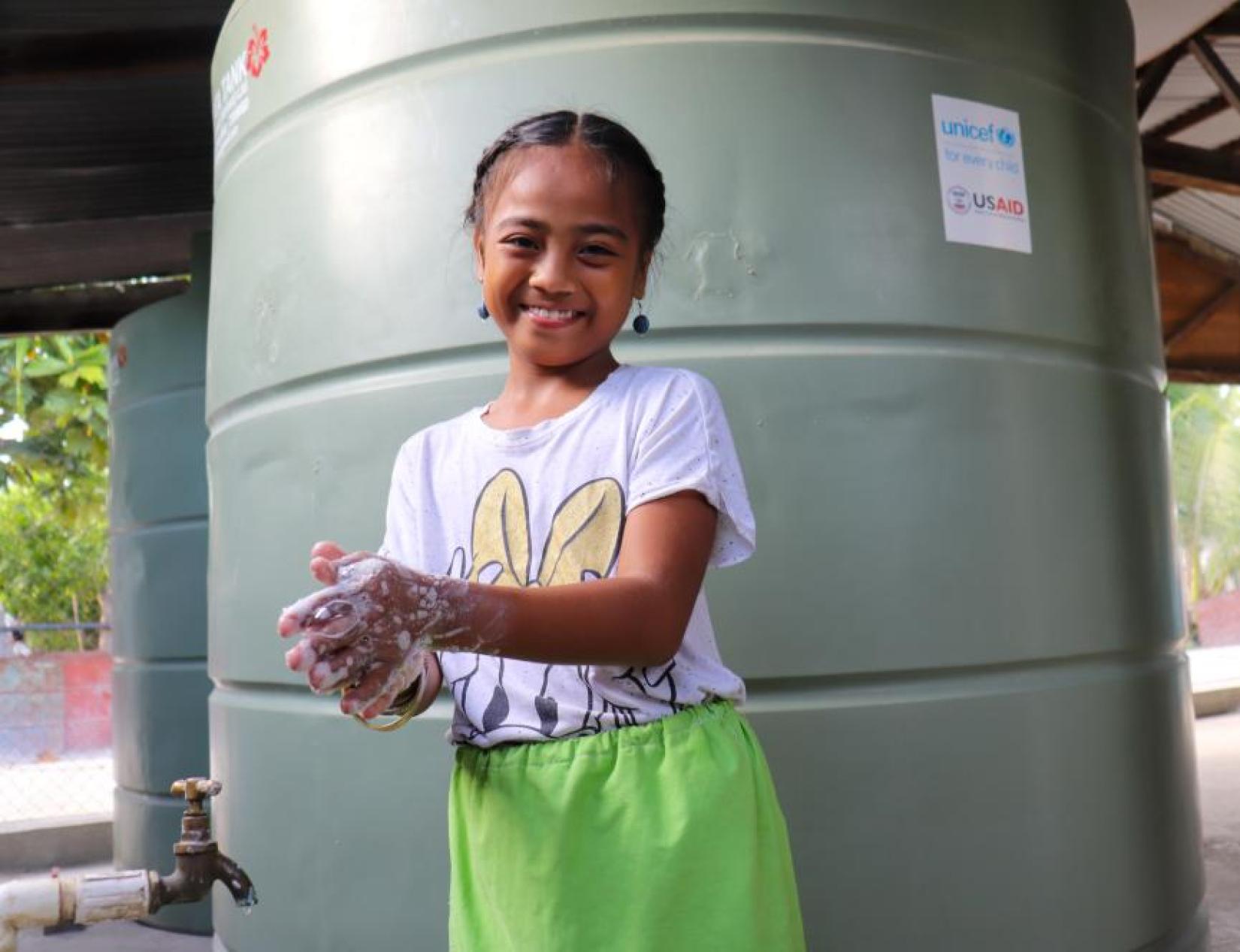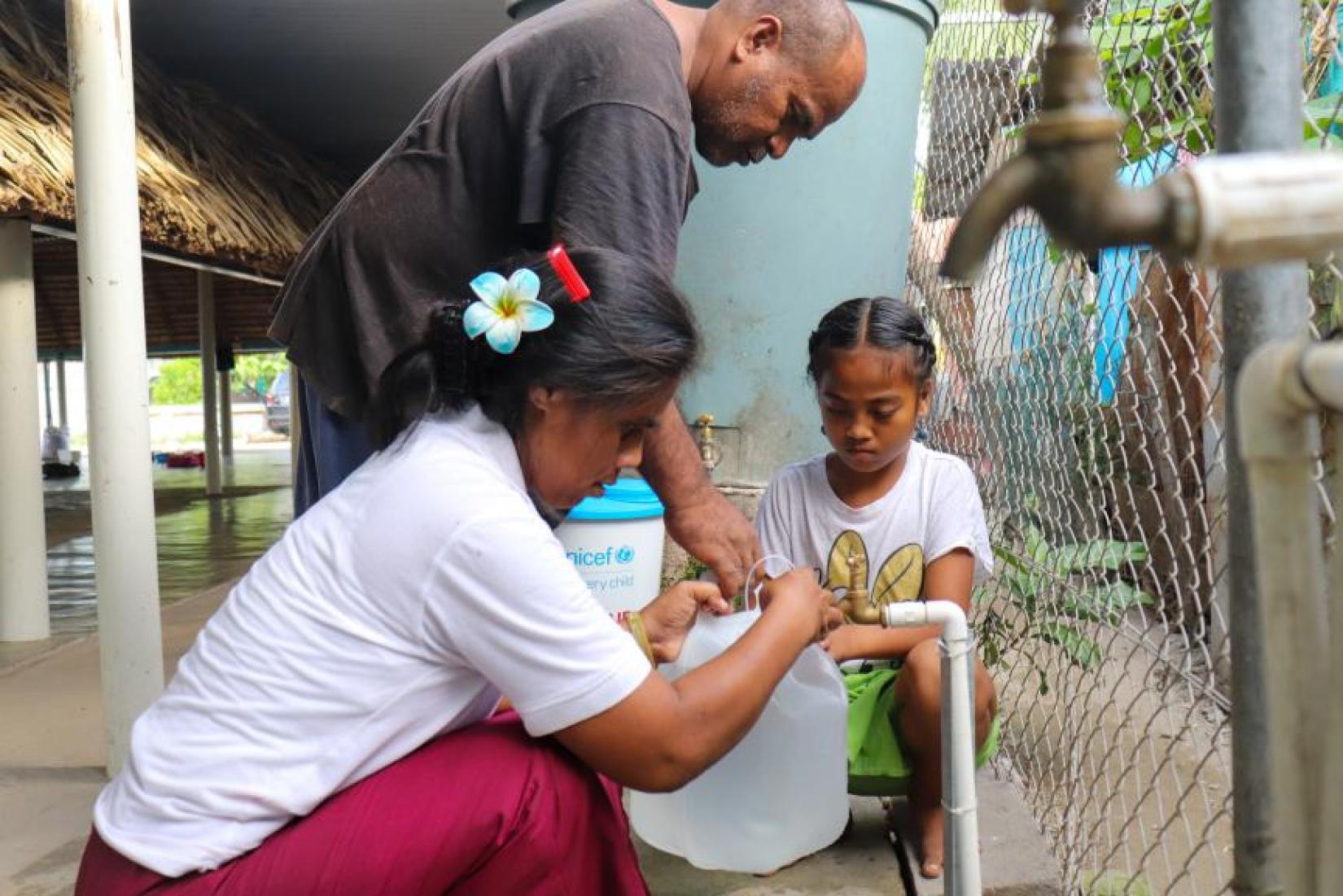Responding to drought in Kiribati

Emma Temakei
For Batouta, a 46-year-old grandmother, life was as usual until a drought hit Kiribati.
Life before the drought
Batouta, who lives together with her husband, daughter, son-in-law and three grandchildren, recalls her life, as it was before the drought.
“At home, there was a well that we used for bathing, washing, cooking, and drinking. An electric pump was installed in the well to pump water to the taps in the kitchen and restroom to ensure fetching water was a simple and easy task for us.”
Batouta’s family also had a tap for water outside their home from the Public Utilities Board (PUB), a government-owned company responsible for providing electricity and water to the public in Betio and South Tarawa.
The water collected from PUB once every two days was used by Batouta’s family for drinking after it was boiled.
Drought hits Kiribati
However, life took a 180-degree turn when the whole of Kiribati experienced a prolonged drought. The drought situation hit its peak in the mid of 2022. This is when the Office of the President declared a State of Emergency and appealed to the public to conserve water and warned against health risks associated with the drought situation.
“We began to notice that the quality of our well water had changed. The salinity of the water increased as the months went by while the amount of PUB water that we got once every two days became less. At times we were not able to get PUB water for more than three days. We then realized that this is one of the hard times we would be facing, and we had to act quick on how we could conserve our water to cater for our needs during these times,” recalled Batouta.
“We closed all the taps in the restroom and kitchen and left one PUB tap open outside the house and restricted its use for drinking only,” adds Batouta.
“Life was not easy having limited water available.”
UNICEF, with support from partners, supports drought response efforts.
In 2022, ChildFund, a UNICEF partner organization based in Betio, carried out a household survey on the impact of the drought. The survey revealed that 22 communities were most vulnerable, including church communities (maneaba). This also included Batouta’s community – Nanomatoa.
Across these 22 affected communities, UNICEF with support from USAID installed rainwater harvesting systems – two 5,000-liter rainwater tanks with all other materials needed to catch rainwater to the tank.
“It was a blessing to receive these big rainwater tanks in our community, and it was timely too because rain has been falling recently which is not much but enough,” said Batouta with a smile on her face.

Clean drinking water for Batouta’s family especially their grandchildren, Kaboo and her siblings is now available at their community.
“We now rely on rainwater from the community tanks and come here daily to fetch our drinking water from it.”
UNICEF has been working together with the Office of the Beretitenti with support from USAID providing response to the drought situation. Households and communities are grateful for the positive impact of the in-kind support which has improved their livelihoods to better cope with the drought season.





